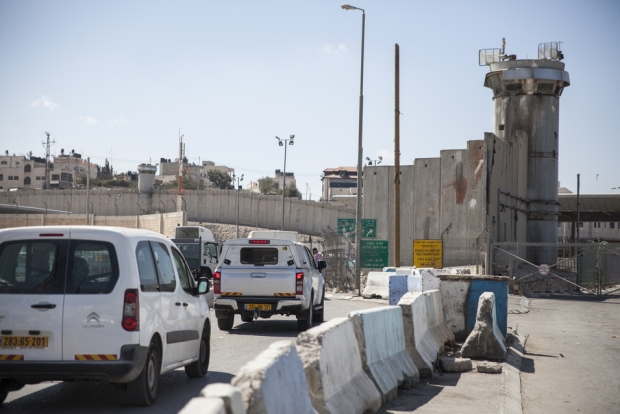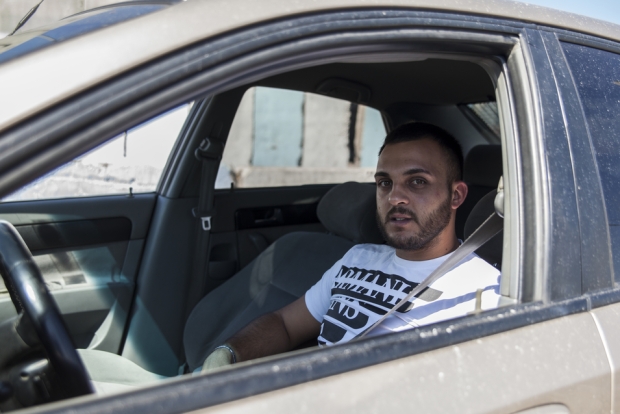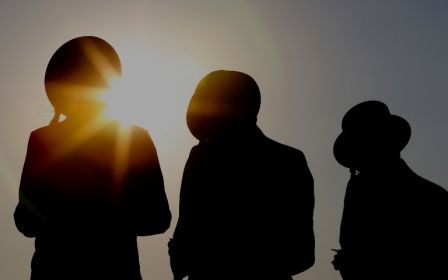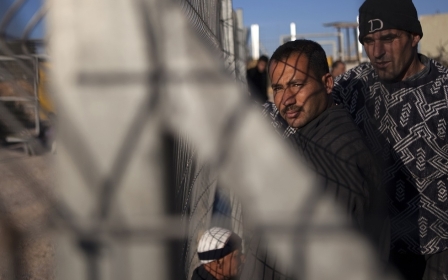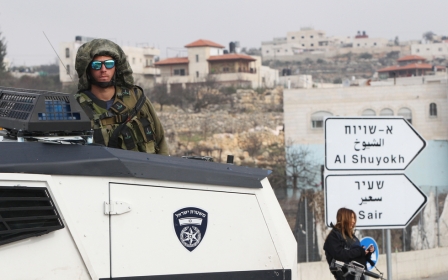For Palestinians, Jewish holidays mean uncertainty, closed roads and lost income
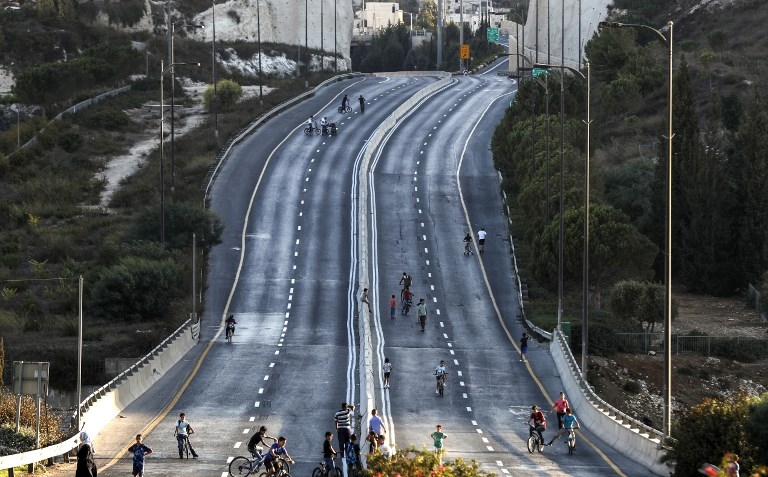
QALANDIYA, Occupied West Bank - Every year, the Jewish high holiday season marks a time when many in Israel turn to God - but for Palestinians in Israel and the occupied Palestinian territories, it is a time of confusion, amid further restrictions on movement and work.
Three main Jewish holidays are celebrated this year in September - Rosh Hashanah, the Jewish new year, between 9 and 11 September; Yom Kippur, or the Day of Atonement, between 18 and 19 September; and Sukkot, or Feast of Tabernacles between 23 and 30 September.
During such holidays, Jews throughout Israel fast, abstain from work and physical pleasures and turn their full attention to God. Most shops close across the country, and highways are eerily empty, as driving is prohibited by Jewish tradition on holy days.
I usually work 25 days a month, so I feel jobless at the moment
- Ismail Manasra, Palestinian worker
Like each year, the Israeli army announced the closure of all checkpoints between Israel and the occupied Palestinian territory during Jewish high holidays, stating such a move would help "prevent terror attacks" and allow Israeli security personnel to have a holiday.
For tens of thousands of Palestinians - living in the West Bank and otherwise cut off from East Jerusalem and Israel by the illegal Israeli separation wall - who cross through the checkpoints every day, these restrictions disrupt their daily lives.
Uncertainty around closures and movement
The main checkpoint between the city of Ramallah and annexed East Jerusalem, Qalandiya accounts for a third of all movement of Palestinians between the West Bank and Israel, with an estimated 6,000 Palestinian workers crossing through each day.
On Wednesday, as Jewish Israelis commemorated Yom Kippur, traffic on the usually jam-packed road on the West Bank side of Qalandiya checkpoint appeared to flow relatively easily.
Responding to a Middle East Eye request for comment, the Israeli army said all checkpoints, including Qalandiya, would be closed for Yom Kippur from midnight Tuesday until midnight Thursday, and that checkpoints would be closed in some capacity or another during Sukkot between midnight Saturday 22 September until midnight on 1 October.
"Crossings and passages to and from the [West Bank] and the Gaza Strip will be open for Palestinians under special circumstances and on a humanitarian basis only," the army stated.
The majority of Palestinians who cross through Qalandiya stayed home on Yom Kippur, many seemingly unaware that the checkpoint was open for all.
He told MEE he was going to visit his mother in the hospital but expressed frustration at the confusing information circulating about checkpoint closures.
"The Israelis tell us all checkpoints are closed. They write it everywhere on the internet," Ruzzi told MEE.
Palestinian driver Hamza Abu Raya mentioned as he proceeded towards the gates of the checkpoint that he only knew of Qalandiya being open from past years' experience.
"I live in Jerusalem. We know there are closures," Abu Raya told MEE. "All Arab roads are open, only Jewish [Israeli] roads are closed."
Israeli highways cross the West Bank, connecting illegal settlements to one another and to Israel.
During the high holidays, Israeli roads in the West Bank are closed to cars, leaving only the smaller Palestinian roads open - making movement even within the occupied Palestinian territory slower.
Nasser al-Amin, who lives in a village next to Ramallah in the West Bank, spoke to MEE as he drove on his way to work in Beit Hanina, a suburb of East Jerusalem.
"Of course, it affects my movement and everything around me," he told MEE, referring to the road closures.
Far-right Israeli settlers have been known in past years to throw stones at cars driving on highways during Jewish holidays, but none of the Palestinians MEE spoke to on Yom Kippur expressed any fear of being attacked for not abiding by Jewish tradition.
"There is nothing to be afraid of," Said al-Hashim, another driver travelling to Beit Hanina, said flatly.
An Israeli army spokesperson told MEE that while it wasn't illegal under Israeli law to drive on the roads during Yom Kippur, "you just wouldn't do that unless you were a first responder or ambulance driver".
Economy hindered
Perhaps those most affected by checkpoint and workplace closures during Jewish holidays are Palestinians working inside Israel.
These workers contribute to the livelihoods of around 650,000 people in the West Bank.
Ismail Manasra lives in Hebron in the south of the West Bank, though he has been working in construction in Ashdod, north of Tel Aviv, since 2009.
Manasra told MEE that he was working only 10 days in September, leaving him unable to make enough money to support his seven children.
"I usually work 25 days a month, so I feel jobless at the moment," he told MEE. "I feel I'm being offended by [the holidays].
"It messes me up financially."
While Israeli workers have contracts, Palestinian workers in Israel are considered freelancers and are typically paid a day rate.
The ILO states that most Palestinian workers do not have a written or oral contract, leaving them without access to rights and benefits, including paid sick leave or holidays.
"If Israelis work with companies, they will be paid through the month more or less the same salary," Manasra said. "It's written in their contracts about the holidays, but for Palestinian workers, they humiliate them."
This article is available in French on Middle East Eye French edition.
New MEE newsletter: Jerusalem Dispatch
Sign up to get the latest insights and analysis on Israel-Palestine, alongside Turkey Unpacked and other MEE newsletters
Middle East Eye delivers independent and unrivalled coverage and analysis of the Middle East, North Africa and beyond. To learn more about republishing this content and the associated fees, please fill out this form. More about MEE can be found here.


